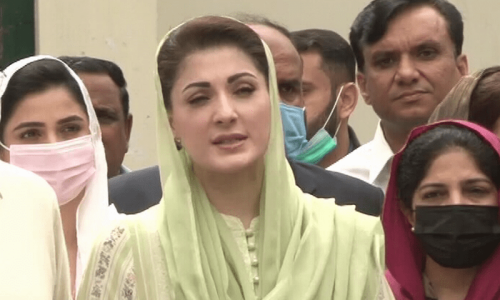THE bilateral relationship between Pakistan and Bangladesh is currently experiencing a deep freeze, as the Awami League-led government in Dhaka seeks to resuscitate the ghosts of 1971, with Islamabad replying in a similar tone. In the latest sign that ties are far from cordial, the Pakistani delegation decided to boycott a meeting of the Inter-Parliamentary Union that kicked off in Dhaka on Saturday. According to a report in this paper, Pakistani diplomats and foreign ministry officials said the situation was “not conducive” for Pakistani lawmakers to participate in the moot. National Assembly Speaker Ayaz Sadiq also confirmed that the Pakistani delegation would not be attending. Moreover, the Bangladesh Cricket Board has also turned down its Pakistani counterpart’s invitation to tour this country citing “inadequate” security arrangements.
Pakistan-Bangladesh relations have taken a nosedive ever since Sheikh Hasina Wajed started her current stint as prime minister. And with Narendra Modi’s rightist government calling the shots in New Delhi, Ms Wajed’s hard line towards Pakistan has been emboldened. Last year’s Saarc summit in Islamabad was postponed as Bangladesh was among the regional states that had pulled out apparently due to Indian pressure. And on March 25, Dhaka observed ‘genocide day’ to mark the tragic events of 1971. What is more, it has been reported that Bangladesh will write to the UN to observe every March 25 as ‘genocide day’. These moves will do little to improve relations between Islamabad and Dhaka, and will only elicit tit-for-tat responses from this country. Indeed, the powers that be in Dhaka must think about the benefits, or lack thereof, of strained ties with Pakistan. How long will milking the tragedy of 1971 for political mileage continue to benefit the Awami League? There is no doubt that the separation of Pakistan’s former eastern wing has left deep scars in this country as well as Bangladesh. However, the way forward is only through truth and reconciliation, not through continuing to poison future generations with the venom of the past. Bangladesh should reconsider its attitude to Pakistan and respond to Islamabad’s overtures. On the other hand, despite the hostile atmosphere, Pakistan should not have boycotted the IPU meeting; it would have afforded the parliamentarians an opportunity to interact with their counterparts in an attempt to find a political solution to end this Cold War. Pakistan must respond to provocations in a calm and measured tone and resist attempts to isolate it regionally and internationally.
Published in Dawn, April 3rd, 2017












































